Want to learn more about ALSO? Sign up for our virtual tour.
Want to learn more about ALSO? Sign up for our virtual tour.
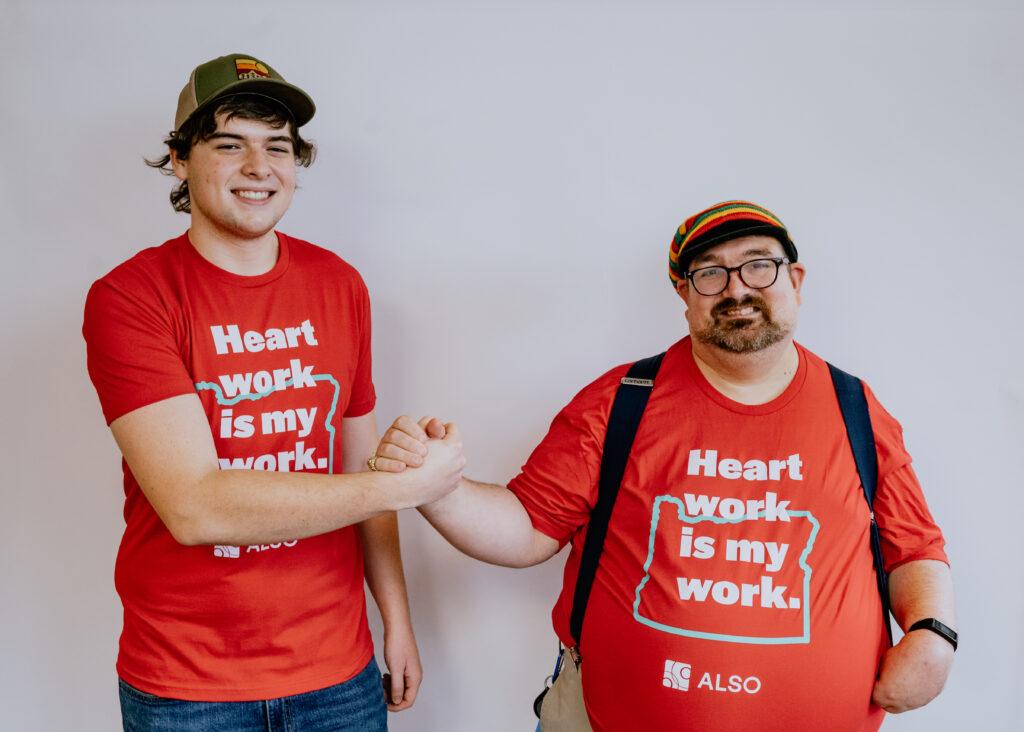
“Being able to help someone live their best life and play a key role in minimizing the hardships and struggles they may face is the most fulfilling part of this job to me.”
These words come directly from ALSO’s Direct Support Professionals (DSPs), the dedicated individuals who provide person-centered, community-based services for people with intellectual and development disabilities (I/DD). Their commitment reflects both the heart of the profession and the profound impact DSPs make every day.
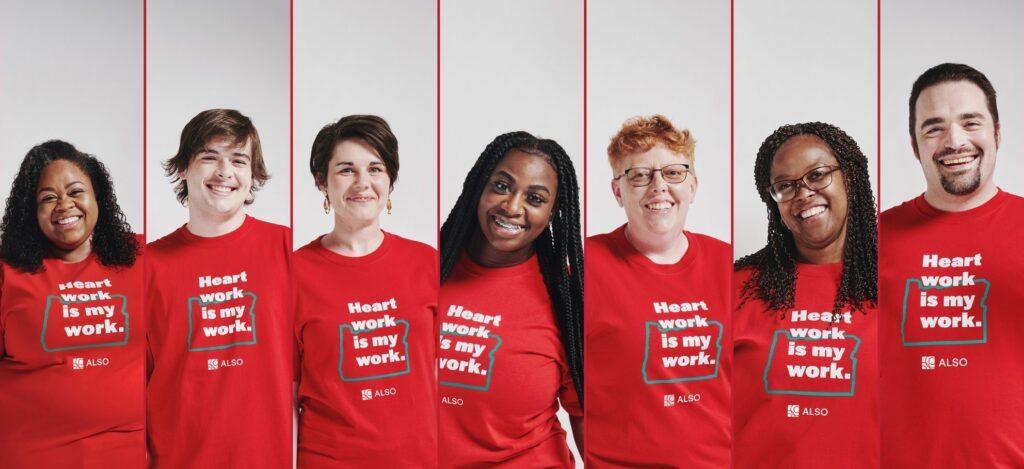
In her Proclamation celebrating DSP Recognition Week (September 7th–13), Oregon Governor Tina Kotek praised the over 10,848 DSPs in the state who help an estimated 36,551 Oregonians with I/DD. The Proclamation acknowledges that this work requires a high level of expertise. On top of a commitment to building close, respectful, and trusting relationships with those that they support, DSPs are critical in the management of complex medical and mental health issues. Research has confirmed what we knew all along — that for people with I/DD, consistent and dedicated DSPs are strongly linked to better quality of life, community relationships, health and safety, and human security.
At ALSO, we celebrate our DSPs not just during DSP Week, but throughout the year. They are a shining light in pursuing our Mission and Vision. The purpose of this post, then, is to:
DSPs provide direct care to the people they support. Although they work with people with various types of disabilities (e.g. spinal cord injury, mental illness, stroke), the service providers at ALSO support persons with I/DD.
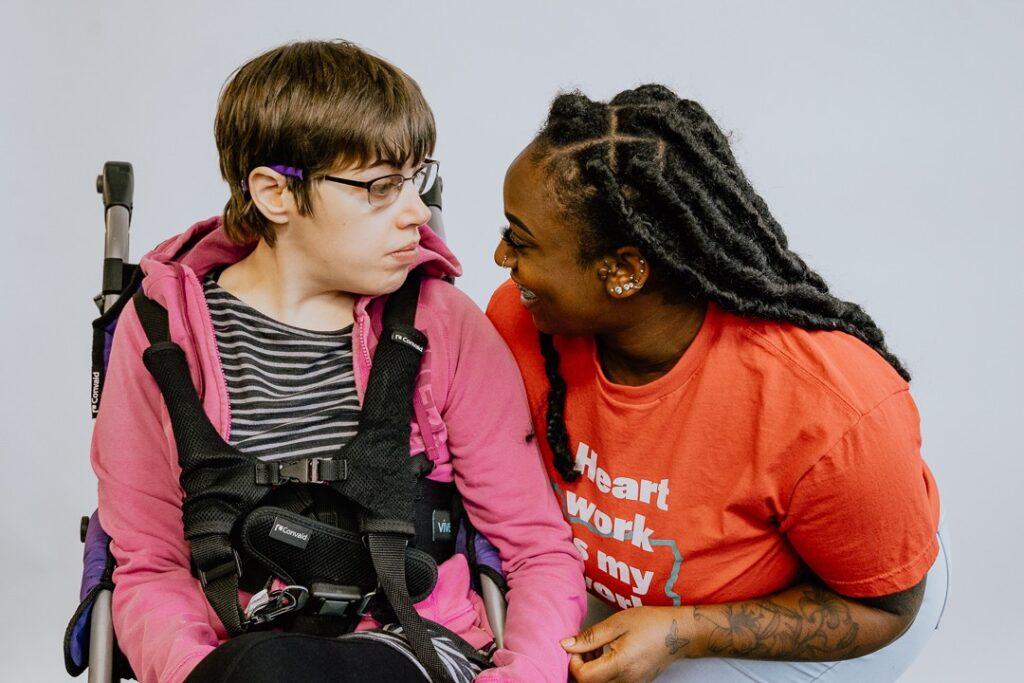
DSPs provide support for the activities of daily living (ADLs). These needs vary widely from person to person. Examples include:
It’s important to note that the DSPs don’t simply do tasks for the individual. They work on skill-building so that they can increase independence. One example of skill-building is helping someone remember the steps of doing laundry by providing color-coded written instructions. Another example is helping someone who uses a wheelchair learn the public transportation schedule and how to secure their wheelchair on the bus so they can independently get to work or school.
The goal we persistently and passionately pursue is for those we support to succeed in their least restrictive environment. The long-term benefit is that individuals improve self-confidence and self-determination, ultimately achieving community integration.
Strong advocacy is front-and-center to ensure disability rights, person-centered care, and equitable access in the community. Additionally, we guide those we support in self-advocacy so they can learn to speak for themselves, direct their own care; and understand that they have rights to be active participants in all aspects of daily life, including recreation, education, and employment.
LEARN MORE: Unpacking Ableism in Women’s Movements: Building Inclusive Advocacy.
Most employers in disability services require DSPs to have a high school diploma or GED (General Education Development). However, some DSPs come from college degree programs such as social work, psychology, and behavioral sciences.
Oregon has several DSP training requirements. These training programs help to ensure that Oregon residents with disabilities benefit from a high standard of care.
In order to provide support services as a DSP, Oregon requires state-approved training and certification. The program places a strong emphasis on person-centered approaches. It also includes specialized training in disaster preparedness. To maintain and improve knowledge of best practices, 18 hours of continuing education is required each year.
Although being a DSP is extremely rewarding, there are days that can be quite difficult and stressful. A great deal of personal and professional dedication is required. But anyone who chooses to be a DSP, particularly with ALSO, will be totally supported by a team of superb co-workers and supervisors.
LEARN MORE: Top Skills you can Learn by Becoming a DSP.
DSP support has a major impact on the quality of life of individuals with I/DD. When we think of quality of life, we aren’t just talking about being medically healthy. True quality of life is more comprehensive, involving key domains of:
In the context of disability, supporting others in achieving a satisfying and meaningful quality of life can be difficult because of several systemic barriers such as social discrimination and stigma, limited access to resources and services (including equity in education), and limited socioeconomic status. As a result, in addition to promoting autonomy and independence of the people they support, DSPs must help to break down these barriers that are often found in schools, communities, and workplaces. It’s an uphill battle at times, but something that any dedicated DSP would not shy away from.
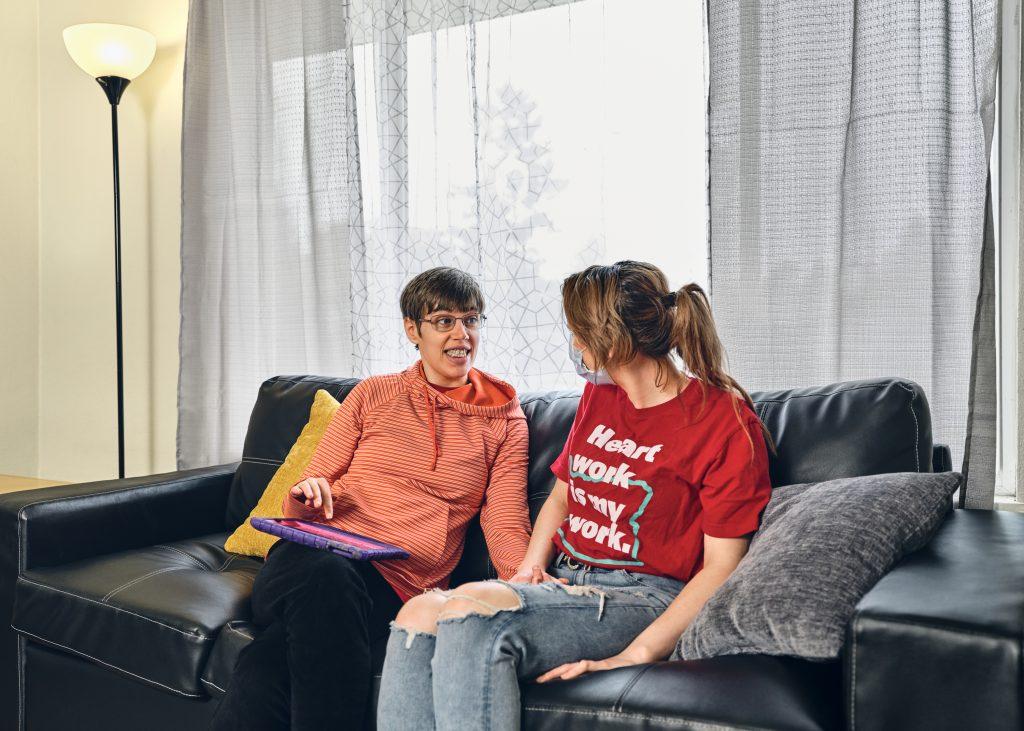
DSPs provide invaluable support to family members, helping their loved ones experience a meaningful, safe, and satisfying life. The children’s services program at ALSO offers in-home supports as well as residential care. The extra support reduces family/caregiver stress and facilitates family training. As behavioral specialist Sarah Scassellati puts it, “You can be mom and dad and have that support for your child, but also that support for yourself.”
LEARN MORE: The Oregon Department of Health and Human Services on Developmental Disabilities.
The hard work of DSPs has an extremely positive impact on society itself. Through advocacy, guidance, creativity, and positivity, they have proven that full community inclusion and participation is a realistic objective. Inclusion creates communities that are more diverse, vibrant, and appreciative of different abilities and skills.
The positive impact on society is also economic. It requires fewer public dollars to care for someone who lives independently with support than it is to warehouse people in high-priced long-term care facilities and institutions.
The DSP workforce is one that is in crisis. Direct support workers in all human services settings are in short supply in Oregon and nationwide. There are several reasons for the crisis:
These issues put additional strain on the remaining DSPs who wish to provide high-quality care.
Despite these challenges, advocates, families, employers, and policymakers are determined to push forward in finding solutions.
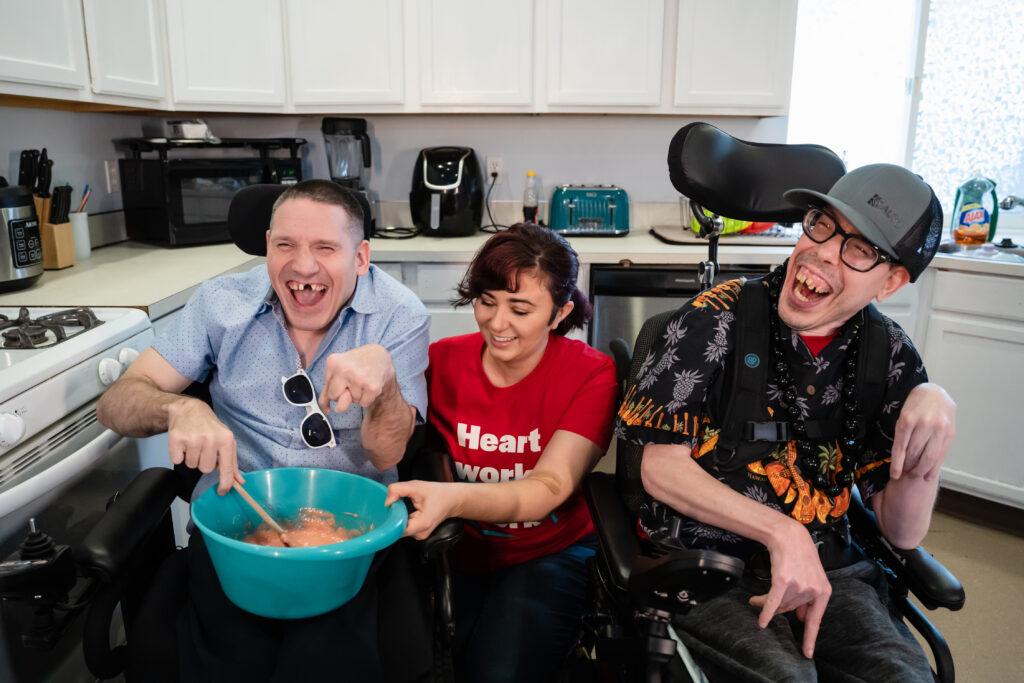
The Office of Developmental Disabilities Services (ODDS) in Oregon has been addressing the DSP workforce crisis by:
LEARN MORE: Training resources for DSPs and other direct care workers from the Oregon Department of Human Services.
There are several organizations on a national level that provide resources for training, advocacy, and networking.
The public can support the DSP profession in many ways. Raising awareness about the contributions of DSPs to Oregon residents with disabilities is a great first step. Advocacy for better pay, solid career pathways, benefits, and working conditions would definitely decrease staff shortages and turnover.
As Oregon voters, we can all use our voices. Increase your involvement in state/local government to create policy changes, redistribution of economic resources, and greater equity for all Oregon residents.
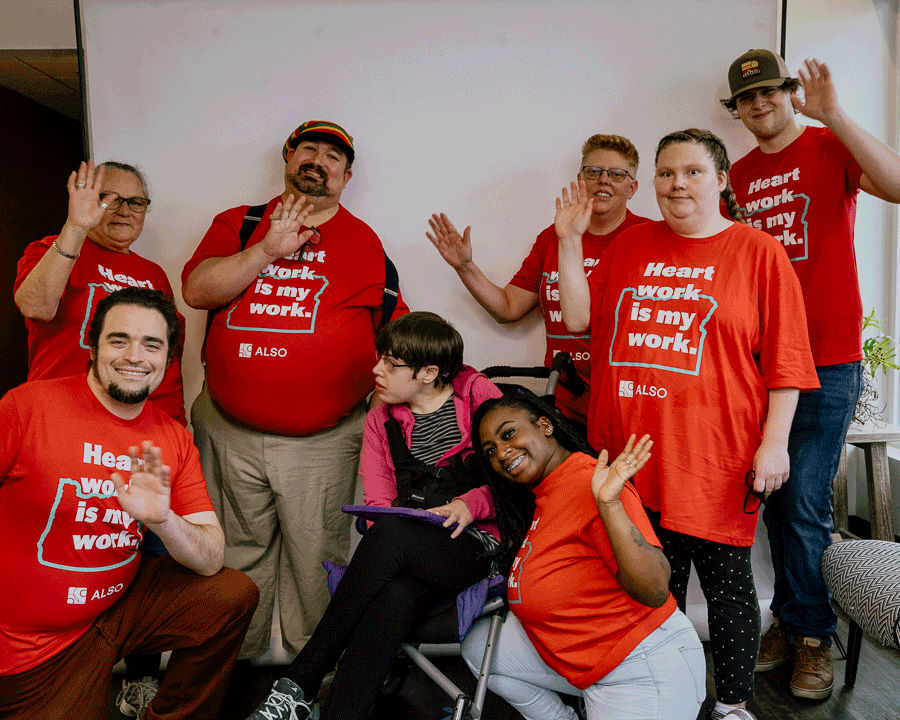
Despite the mediocre wages, long hours, and difficult days, Danny has this to say about his 15 years working at ALSO:
“For me, it’s the sense of purpose that’s so rewarding. ALSO’s Mission is something I’m proud to serve. Now my work days just fly by doing what I love.”
Yes, DSPs play a critical role in facilitating increased independence, inclusion, and a meaningful life for the people they support with intellectual and developmental disabilities. Without them, society is left out of the contributions and joyful participation of people who are living with disabilities. They truly deserve continued support and recognition.
We encourage you to support the Mission and Vision of ALSO in any way that you can: through volunteering, donations, and continued advocacy.

Sign up for our newsletter to get our latest news, content, and job opportunities.
Help us ensure that everyone has the same opportunities in their home, workplace and community. Let’s make dreams!
